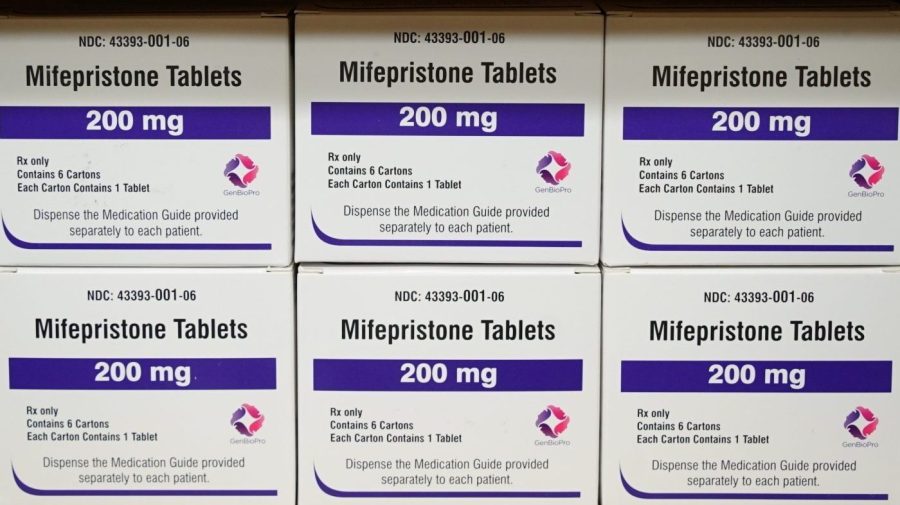
Medication abortion pills — mifepristone and misoprostol — are effective and run a low risk of causing serious adverse events when mailed to patients, a new study shows.
The study, published Monday in the peer-reviewed publication JAMA Internal Medicine, looks at the experiences of more than 500 people who wanted to end a pregnancy between January 2020 and May 2022.
Researchers conducted a cohort study that included patients from 11 abortion clinics and primary care clinics across seven states.
Eligible participants were looking for a medication abortion at 63 days of gestation or fewer, spoke English or Spanish and were at least 15 years old.
“After assessing eligibility for medication abortion through an in-person screening, mifepristone and misoprostol were prescribed using a mail-order pharmacy,” the study authors wrote.
Daniel Grossman, a professor at the University of California San Francisco’s Department of Obstetrics, Gynecology and Reproductive Science and co-author of the study, said participants needed to be screened to abide by U.S. Food and Drug Administration regulations.
In 2020, the FDA required mifepristone to be dispensed in person at a clinic, doctor’s office or hospital and to conduct the study, researchers had to get special permission from the agency through an Investigational New Drug application.
“At the time, FDA refused to approve the IND protocol unless patients had an ultrasound or physical examination,” Grossman told The Hill in an email. “The focus of our study was therefore to examine specifically whether dispensing the medication in person or by mail made a difference in outcomes.”
Most participants received the pills in the mail three days after enrolling in the study, and only five people were sent a second package after experiencing delivery delays, according to the study.
A complete medication abortion occurred in 499 of the 510 participants, including among 27 people who took an additional dose of misoprostol.
“This compares favorably with a complete abortion rate of 97.4% cited on the mifepristone label,” the study reads.
A total of 11 participants had an unsuccessful medication abortion, with 10 receiving a vacuum aspiration for incomplete abortion or for an ongoing pregnancy, study authors wrote.
And one participant chose to continue the pregnancy after taking the medications and “subsequently reported the uncomplicated delivery of a healthy newborn.”
Among all participants, there were 24 cases of adverse events that were “possibly, probably, or definitely” related to the medication abortion.
These events included unscheduled visits for symptoms like bleeding, pain, nausea, vomiting, infection and diarrhea, according to the study.
Out of these events, 17 included an emergency room visit, and in 10 of these visits people received treatment like analgesics, antibiotics, intravenous fluids or vacuum aspiration for an incomplete abortion.
Three people suffered serious adverse events, which all required hospitalization, the study adds. One person underwent a blood transfusion after hemorrhaging during an incomplete abortion, one was given antibiotics for an infection during an incomplete abortion and one “received no treatment.”
Nearly all of the study’s participants said they were satisfied or somewhat satisfied with the mail-order dispensing of the pills and said they would use the method again if needed.
Researchers wrote that the study’s findings support the U.S. Food and Drug Administration’s 2023 decision to remove the in-person dispensing requirement for mifepristone. Misoprostol is already available by prescription at most pharmacies, according to the American College of Obstetricians and Gynecologists.
“This model of care is particularly helpful for primary care providers who are interested in providing medication abortion but face difficulties stocking mifepristone in their offices,” said Grossman in an email.
“Being able to prescribe the medication to be dispensed at a local retail or mail-order pharmacy makes it much easier for them to offer the service.”














